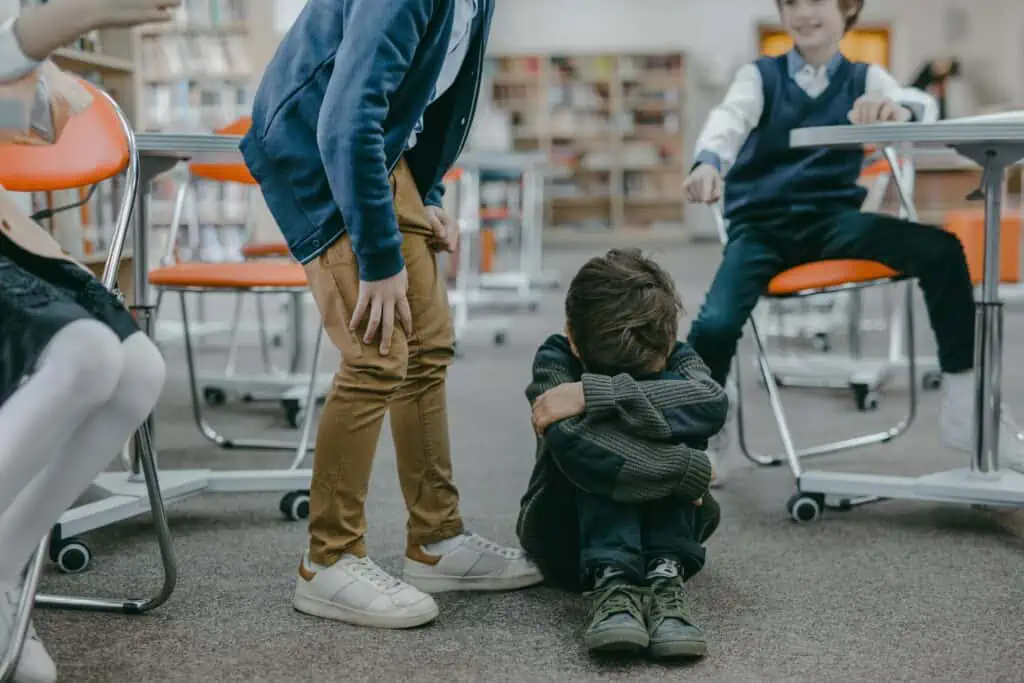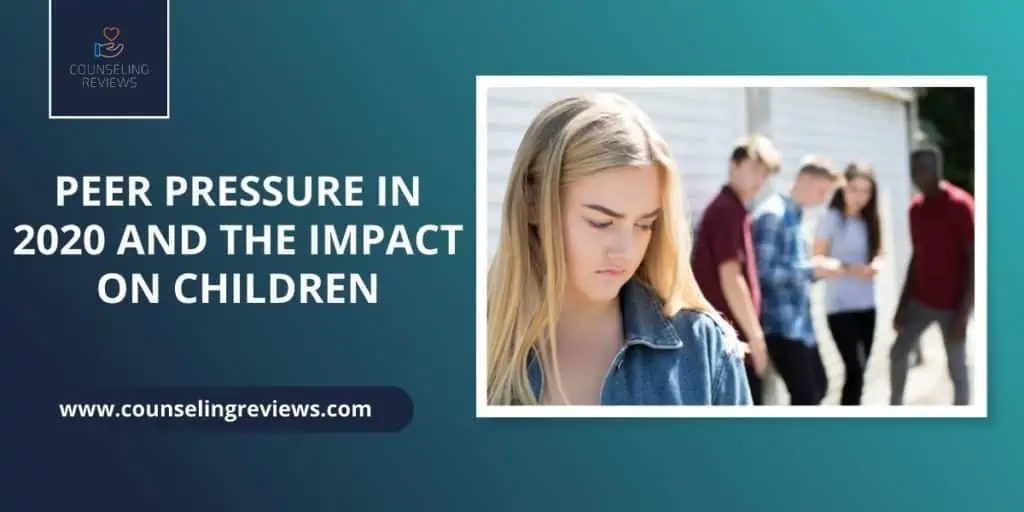Peer influence has been around since the beginning of time. Kids always want to fit in, fear missing out, and worry about getting teased. The fear instilled by these negative possibilities causes children and teenagers to succumb to peer pressure. Understanding how to manage indirect peer pressure on your kids and the pressures they face is essential for keeping them on the right track.
How Does Peer Pressure Present Itself in Our Kids’ Lives?
Your kids are likely to feel some direct peer pressure from their peer group. They may experience negative peer pressure to engage in risky behaviors like drugs and alcohol, skipping school, engaging in sexual activities, and stealing. Some children, mostly teens can suffer from drug abuse. Obviously, parents want to keep their kids away from the same group with these types of influences. However, there is such a thing as positive peer pressure.
Kids can be positively influenced to try new things, create meaningful friendships, make good grades, or get a job. It is essential to understand that your teenager is going to be socially influenced. How you deal with it as a family makes the difference between short-term problems and long-term consequences.

What is the difference between negative peer pressure and Positive peer pressure?
- Negative Peer Pressure:
- Definition: Negative peer pressure involves peers encouraging or pressuring individuals to engage in behaviors or make choices that are harmful, risky, or against their better judgment.
- Examples: Encouraging substance abuse, skipping school, engaging in illegal activities, or making choices that compromise one’s values or well-being.
- Effects: Negative peer pressure can lead to negative consequences, such as increased stress, anxiety, guilt, and harm to one’s physical and mental health. It may also result in regrets and damage to relationships.
- Positive Peer Pressure:
- Definition: Positive peer pressure refers to peers motivating or inspiring individuals to make constructive choices, adopt healthy behaviors, or pursue their goals and values.
- Examples: Encouraging academic success, participating in sports or artistic activities, volunteering, or making responsible and ethical choices.
- Effects: Positive peer pressure can have a beneficial impact on an individual’s life. It can boost self-esteem, foster personal growth, enhance mental well-being, and lead to the development of positive habits and friendships.
What’s the Difference Between the Peer Pressure Kids Experience Today, That a Generation Ago?
With advancements in technology, specifically in social media platforms, kids are feeling pressure to conform more intensely. No longer does the pressure stay at school or within social and peer groups alone. The pressure is on their phones, computers, and tablets. This means kids may get a little reprieve from being told what is socially acceptable. The constant barrage of pressure can have severe and negative consequences as it may affect their mental health. Teaching yourself and your kids how to resist negative influences can do a long way in keeping them safe.
Statistics
Just about all kids feel peer pressure to some degree. According to a survey by Parent Further, 90 % of kids feel some type of peer pressure. Unfortunately, the pressure can begin for kids as young as 10-years old.
Kids from dysfunctional homes, kids with no friends, kids who can’t express their feelings, or who have low self-esteem may be the most vulnerable to peer pressure. While concerning, research suggests it does gives parents a chance to talk to their kids early to get ahead of the problem.
Tips on How to Approach Your Child in Order to Start a Dialogue
Helping teenagers deal with peer pressure is crucial for their own life and well-being. Here are seven tips for parents to support their teens in handling, positive or negative, peer pressure:
- Open Communication: Build a foundation of open communication with your child from an early age. Initiate discussions about any peer pressure they may have encountered, encouraging them to express their feelings and concerns. Make it clear that you’re there to listen and assist if needed.
- Personal Experiences: Share your own experiences dealing with peer pressure when appropriate. Describe how you handled those situations and the importance of making healthy choices. Be a role model for positive behaviors in your interactions with friends and family.
- Boundary Setting: Teach your child how to establish boundaries and be assertive in their communication. Encourage them to think about how they would respond in a negative peer pressure scenario and practice saying no in various ways.
- Plan Ahead: Work with your child to create a plan and a backup plan for situations involving negative peer pressure. Let them know that it’s perfectly acceptable to make an excuse if they’re unsure about what to do. Help them brainstorm creative ways to exit uncomfortable situations gracefully.
- Know Their Friends: Make an effort to get to know your child’s friends and their parents if possible. Encourage your child to invite friends over, providing an opportunity for you to become familiar with their social circle.
- Promote Positive Relationships: Encourage your child to seek out positive relationships and choose friends who respect them without exerting undue pressure. Discuss the qualities of healthy friendships and why it’s essential to surround oneself with supportive individuals.
- Foster Independence: Promote independence in your child and teach them to trust their instincts. Emphasize that they can’t please everyone, and it’s perfectly acceptable to prioritize their own well-being and values when faced with peer pressure.
How Can Online Therapy Help?
If your teen is struggling with peer pressure, talking to a mental health professional may be an excellent option. Sometimes you need the help of outside influence to talk to your kids. Online counseling for teenagers is specifically targeted toward helping them navigate their adolescent years.
This style of therapy is quite helpful for several reasons. Firstly, teenagers often feel quite comfortable communicating online rather than face-to-face. Additionally, your teen can participate in your own home, which is quite convenient for everyone involved. Finally, this is usually a more cost-effective method, making it easier to work the cost into your child’s mood and budget.
Resources
There are ample resources you can use to help manage your kids and their peer influences.
One of the following may be helpful to you:
- Online counseling for families and/or teenagers
- Talk to the school counselor or their teachers
- Talk to other parents
- Read up on peer pressure in online formats
- Join a support group
- Talk to older kids in your extended family
How does peer pressure impact our mental health?
Peer pressure can significantly impact our mental health, often leading to stress, anxiety, and even depression. The desire to conform to social norms or gain acceptance from peers can push individuals into making choices or risky behavior that may not align with their values or well-being.
When people succumb to negative peer influences or pressure, they may experience internal conflict, guilt, or shame, all of which can take a toll on their mental health. The fear of rejection or ridicule from peers can create a constant state of anxiety, eroding self-esteem and self-confidence in a young person.
Moreover, peer pressure can lead to risky behaviors, substance abuse, or involvement in harmful activities, further exacerbating mental health issues. Coping with the emotional turmoil resulting from peer pressure can be challenging, underscoring the importance of fostering resilience, self-awareness, and a strong support network to help the peer pressured and mitigate its negative effects on mental well-being.
How to prevent peer pressure from affecting your mental health?
To safeguard your mental health from the adverse effects and negative influence of peer pressure, consider these strategies:
- Choose your friends wisely: Pay attention to your friends’ behaviors and values. Seek out friendships that align with your goals and promote positive behaviors.
- Encourage positive friendships: Surround yourself with friends who uplift and inspire you to engage in healthy behaviors. Positive peer influence can have a profound impact on your mental well-being.
- Learn to say NO: Politely but firmly decline offers or requests that go against your values or well-being. It might feel uncomfortable initially, but setting boundaries is crucial for your mental health.
- Be assertive: When refusing your friends, be confident and assertive. Understand that giving in to temptations can lead to regrettable consequences, and your well-being should take priority.
- Involve a trusted adult: Adults, such as parents or mentors, can serve as a strong support system. Don’t hesitate to seek their guidance and use them as a buffer to refuse negative peer pressure when necessary. They can offer valuable advice and back you up in difficult situations.
By implementing these strategies, you can navigate peer pressure and social groups more effectively and protect your mental health while fostering positive relationships and social groups.
Conclusion
Peer pressure is a very real influence with potentially devastating consequences. Staying connected with your kids and being involved in their lives is the best way to ensure they stay safe and make good choices.
Currently residing in Arizona, John shares his home with two beloved pets - a very cute dog and a cat. Although they don't always see eye-to-eye, John's furry companions bring him joy and inspiration, serving as a constant reminder of the importance of cultivating meaningful relationships.
With a keen eye for detail and an unwavering commitment to quality, John is a true asset to the counselingreviews.com team. Whether he's writing about the latest research on mental health or offering practical advice for managing stress, John's expertise and insight are always in high demand.
If you're looking for well-researched and informative content that can help you improve your mental and emotional well-being, be sure to check out John's articles on counselingreviews.com. His writing is sure to provide you with the guidance and inspiration you need to overcome life's challenges and achieve your goals.
- Interview with Gary Tucker: Navigating Eco-Anxiety in a Changing Climate - April 15, 2024
- Mental Health in the Age of TikTok: Experts’ Take - April 12, 2024
- Warning Signs of a Troubled Marriage - February 11, 2024




